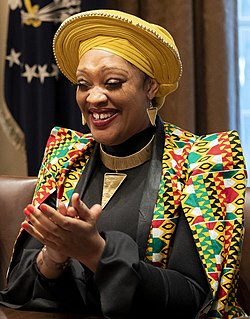A Quote by Anthea Butler
There are many photos of Catholic priests and nuns marching in the Civil Rights movement, most notably at the March on Selma, Ala. in 1965. However, the history of Catholicism in this country tells a different story.
Related Quotes
For many years now, I have been an outspoken supporter of civil and human rights for gay and lesbian people. Gays and lesbians stood up for civil rights in Montgomery, Selma, in Albany, Ga. and St. Augustine, Fla., and many other campaigns of the Civil Rights Movement. Many of these courageous men and women were fighting for my freedom at a time when they could find few voices for their own, and I salute their contributions.
With all respect to Congressman Lewis, when I think about him, I always have that image in my mind when he was on the Selma Bridge. The truth of the matter is, with all that he has given towards the fight for civil rights - which we greatly appreciate - these are no longer the days of marching over the Selma Bridge.
How blind to believe the civil rights movement ever ended. The civil rights movement never ends, and it never will. It has been marching since the beginning of time. Where Martin Luther King started is where Gandhi left off, and where he started, Abe Lincoln left off, and before that Whitfield all the way back to Moses. God has not moved. We have. But it is never too late. We are not at the mercy of these events. We can alter the course of history. We can stand against the dangerous arc of this story. But we need people who are willing to speak truth.
I went to my first civil rights rally when I was 17 years old. I was a little skinny blond kid, scared to death, marching against the KKK in South Georgia. And I have never stopped marching in protests since. Not ever. I mean, LGBT rights, women's rights, the rights of people of color... I'm your guy. I'm going to be out there marching!
In less than a century we experienced great movement. The youth movement! The labor movement! The civil rights movement! The peace movement! The solidarity movement! The women's movement! The disability movement! The disarmament movement! The gay rights movement! The environmental movement! Movement! Transformation! Is there any reason to believe we are done?



































